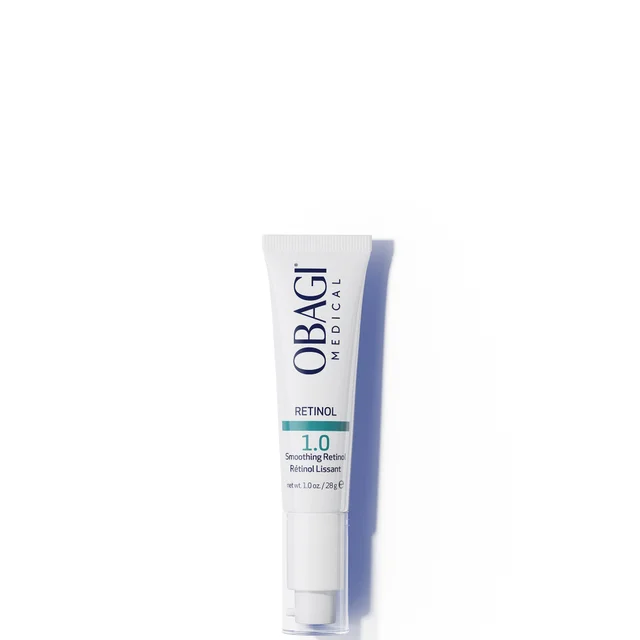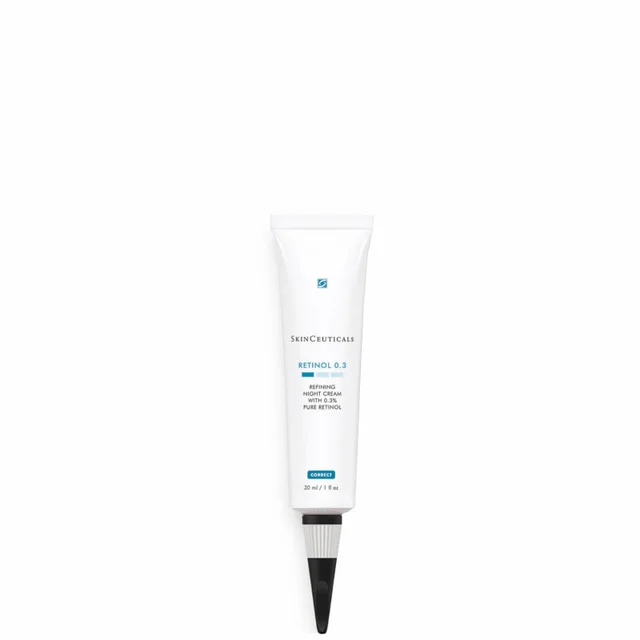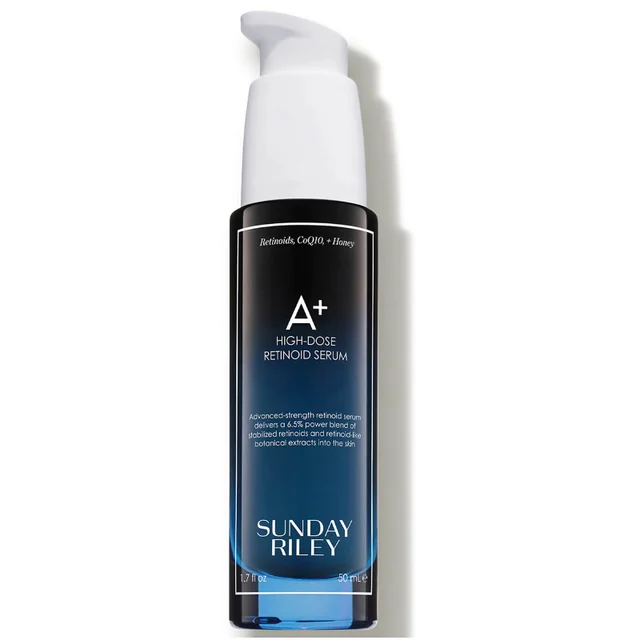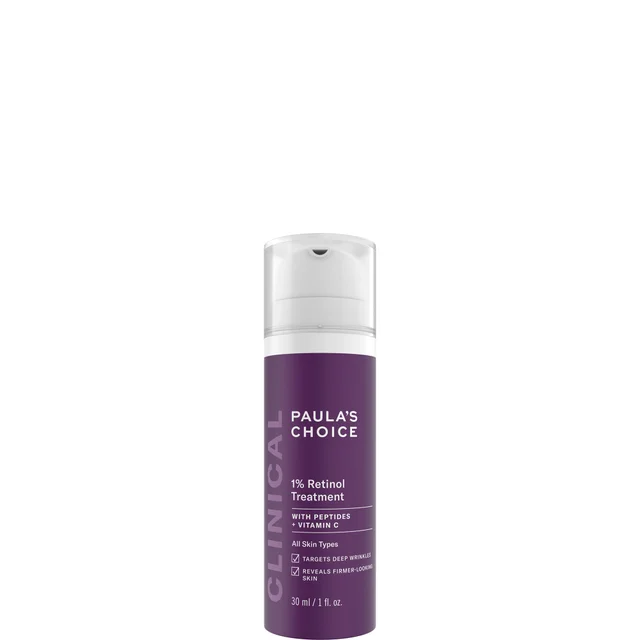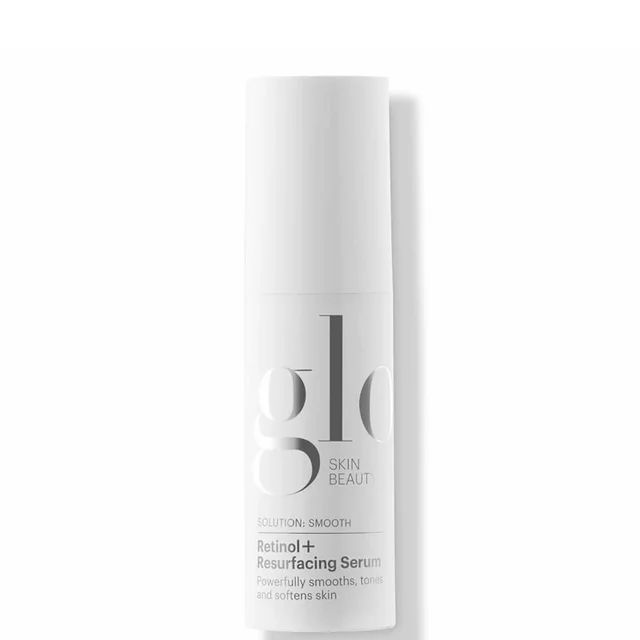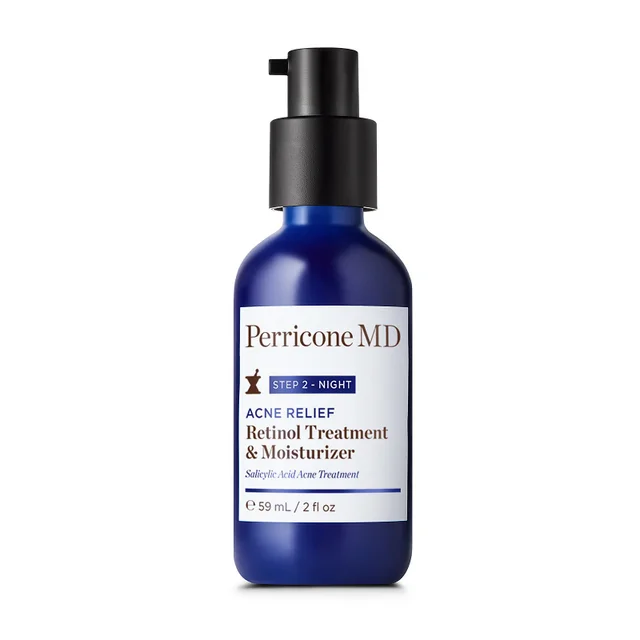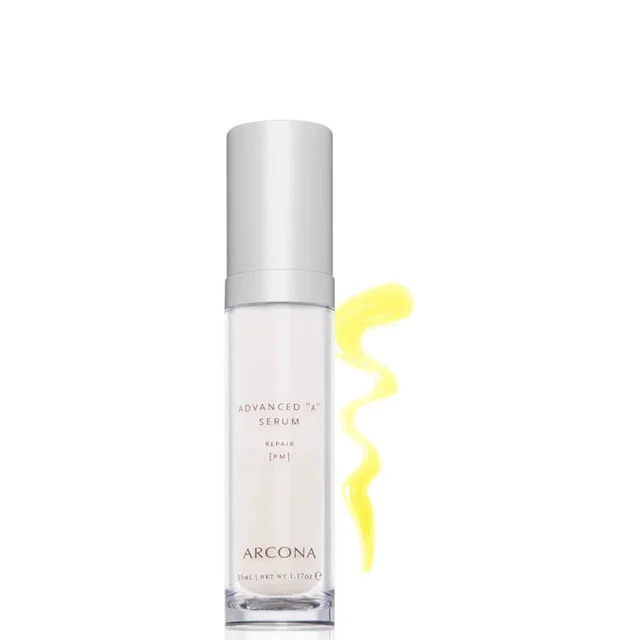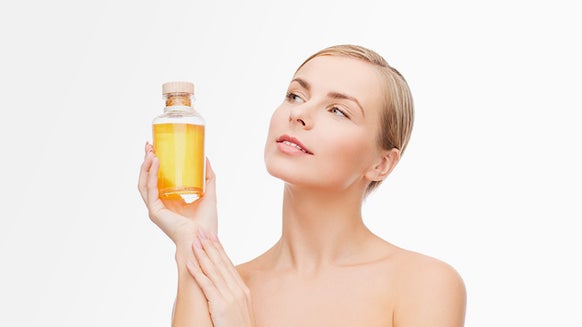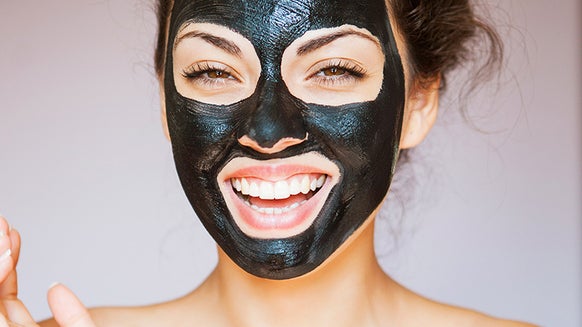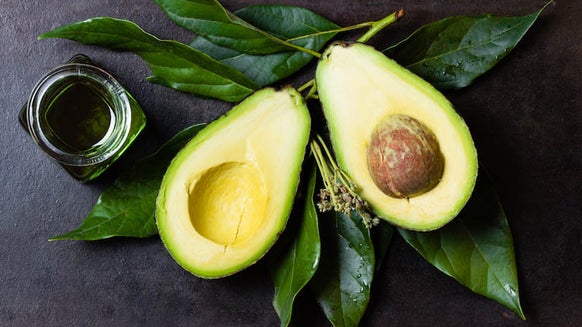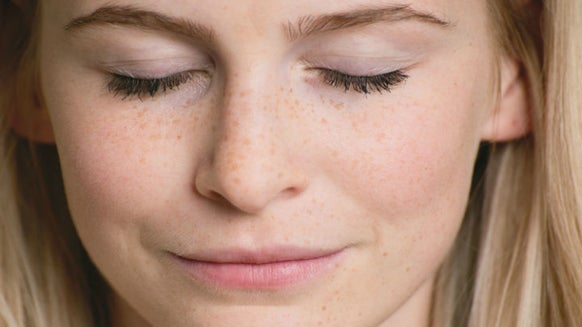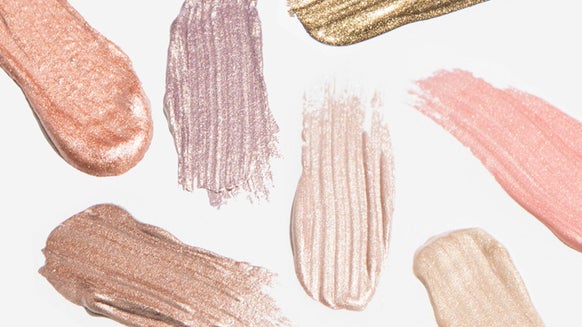Unlocking Clear Skin: How to Use Retinol for Acne
Regardless of age or skin type, dealing with acne is one skin struggle we can all relate to. While there’s no shortage of preventative products and spot treatments designed to restore your clear skin, managing breakouts isn’t always as quick or simple—especially when you’re dealing with acne that just won’t go away. Not only does stubborn acne put a damper on one’s self-confidence, but it can also lead to post-inflammatory hyperpigmentation and long-term scarring. That’s where retinol comes in.
We know retinol as an anti-aging MVP, but any skin expert would tell you that this anti-aging superstar is just as effective in clearing up pimples, preventing future breakouts, and refining the appearance of discoloration and scarring. But how exactly does retinol help with acne? Below, we break down everything you need to know when using retinol for acne and list the best retinol products to help you achieve healthy, youthful, and blemish-free skin.
Table of Contents:
- Is Retinol Good for Acne?
- What Are the Benefits of Retinol for Acne?
- How Long Does It Take for Retinol to Work on Acne?
- Can You Put Retinol on Cystic Acne?
- How to Combine Retinol with Other Skincare Ingredients for Acne
- How to Incorporate Retinol into Your Skincare Routine
- The Bottom Line
Is Retinol Good for Acne?
Yes, indeed. We know that breakouts are triggered by several internal and external factors, chief of which are overactive sebum glands and the overproduction of keratinocytes. Keratinocytes are skin cells that tend to stick together and produce hard, pore-clogging plugs that—you guessed it—ultimately leads to acne. And with all these factors in play, it’s easy to see how pores can quickly get overrun by oil, dead skin cells, and debris.
Retinoids work by reducing and stabilizing the production and desquamation of keratinocytes. Desquamation refers to the shedding of dead skin cells on the skin’s surface layers, which causes clogged pores and inflammation. “Retinol interrupts the abnormal cohesion of keratinocytes, making them looser and breaking up keratinocyte plugs that can easily slough off the skin’s surface instead of clogging pores,” explains RenewMD Beauty and Wellness Spa founder and medical director Simran Sethi, MD, a doctor of internal medicine in San Francisco, CA.
Retinol and other topical retinoids also have anti-inflammatory and comedolytic effects. “It unclogs pores and inhibits the formation of comedones, which are blemishes that form when the pore traps oil and skin cells, such as blackheads, whiteheads, and red pimples,” explains Kemunto Mokaya, a board-certified dermatologist in Houston, TX.
But that’s not all. Retinol’s ability to hasten cell turnover and regeneration also allows for faster skin renewal, which helps prevent future breakouts and addresses post-acne concerns. “It leads to faster exfoliation of skin. This exfoliation allows other topical treatments to penetrate the skin better and removes dead skin cells, thereby preventing them from clogging pores,” explains Dr. Mokaya. Likewise, this exfoliating effect and increased cell turnover help in the reduction of scarring, discoloration, and hyperpigmentation that are often left behind by breakouts.
What Are the Benefits of Retinol for Acne?
Just like with its anti-aging properties, the benefits of retinol for acne come with solid scientific evidence. According to the American Academy of Dermatology (AAD), retinoids play a key role in the treatment of acne “because they are comedolytic, resolve the precursor microcomedone lesion, and are anti-inflammatory.” Additionally, they enhance and support the benefits of other known acne-fighting ingredients and further improve and maintain the skin’s clarity. Here are the top benefits of retinol for acne:
Reduces inflammation and redness: Bacteria in acne triggers the production of cytokines, a group of signaling proteins that alert’s the body’s immune system. Overproduction of cytokines results in inflammation, and retinoids counteract this action by blocking inflammatory pathways.
Regulates oil production: Studies show that retinoids are capable of binding to the skin’s oil-producing cells, which results in decreased sebum production. Retinoic acid, for example, hastens the process of expelling excess oil from the skin, which also helps to reduce any inflammation in the sebaceous glands and prevent pores from clogging up.
Promotes skin cell turnover: Retinol’s ability to hasten cell turnover helps maintain the integrity of your skin, including pores. By fast-tracking cell turnover, retinol improves the healing process of acne lesions, prevents pore clogging, and reduces post-inflammatory hyperpigmentation.
Prevents acne scarring: Retinol’s collagen-boosting ability enables it to prevent and treat existing acne scarring by plumping and refining its appearance. Additionally, by preventing inflammation, retinol also decreases the likelihood of developing severe acne lesions and scarring.
How Long Does It Take for Retinol to Work on Acne?
Using retinol for acne takes a little time to produce optimal results. For one, most skin types need to be gradually eased into retinol to build tolerance, especially when using the ingredient for the first time. In fact, it’s common for some to experience “purging” during the first two to six weeks of retinol use, but Dr. Mokaya assures it’s all part of the process. “The rapid turnover of skin cells causes the oil and debris that were trapped under the skin to come to the surface,” she adds.
As far as seeing real results is concerned, it’s important to remember that, as powerful as retinol is, it’s not an instant fix. You may start noticing minor improvements in your skin during the first month, but more defining results may only begin to show after 12 weeks to six months of consistent use, especially when addressing severe acne or hyperpigmentation.
Several factors can also influence the efficacy of retinol, including sun exposure, consistency, other active ingredients used in combination with retinol, dosage or potency, and whether you’re using the product as directed by the label or a skin care professional.
Can You Put Retinol on Cystic Acne?
The big bad of acne, cystic acne is considered the most serious and tends to appear larger and deeper in the skin. They present as red, pus-filled cysts with a white bump and are tender or painful to the touch. Cystic acne is more common in oily skin types and occurs when bacteria, excess oil, and dead skin cells get trapped in the pores.
While you may apply retinol to cystic acne, it’s worth nothing that, because of its severity, cystic acne may not always respond to over-the-counter treatments. In many cases, treating cystic acne requires a stronger approach. Dermatologists often recommend a prescription-grade topical retinoid to calm inflammation and unplug pores and an antibiotic to kill off bacteria. In more serious cases of cystic acne, a medical professional may prescribe isotretinoin, a type of retinoid taken orally.
Regardless of which route you’re taking, it’s important to understand that using either topical or oral treatments comes with their own sets of side effects. As always, and especially when addressing conditions like cystic acne, it’s best to speak with a professional before jumping on any type of treatment.
How to Combine Retinol with Other Skincare Ingredients for Acne
While using retinol for acne is an effective way to bring back youthful, clear, and healthy skin, it works even better when combined with other acne-fighting ingredients. But that doesn’t mean you’re free to mix and match these actives to create a potent anti-acne cocktail.
Using retinol with other ingredients isn’t always straightforward. Below is a guide on how to get the best of retinol and other acne treatment OGs to achieve your desired results.
Retinol and benzoyl peroxide: Benzoyl peroxide is a powerful antiseptic that kills off bacteria that cause inflammatory acne. But when used with retinol, benzoyl peroxide (an oxidizing agent) and retinol (an antioxidant) may cancel each other out. The best way to reap both ingredients’ benefits? By using benzoyl peroxide in the morning and saving retinol for your nighttime routine.
Retinol and salicylic acid: The exfoliating effects of salicylic acid can make the skin susceptible to dryness and irritation and using it with a heavy-hitting ingredient like retinol will only aggravate unwanted side effects. It can also hinder retinol’s conversion, while retinol can raise the skin’s pH level, making it less ideal for salicylic acid. Like benzoyl peroxide, it’s best to use these two ingredients alternately—either on different days or by using salicylic acid in the morning and retinol at night.
Retinol and glycolic acid: Glycolic acid is a chemical exfoliant that excels at skin renewal and targets blemishes and post-acne scarring, much like retinol. Although glycolic acid is gentler and more hydrating than other exfoliants, skin experts still caution against using it at the same time as retinol to avoid irritation and recommend alternating the two products.
Retinol and niacinamide: Niacinamide’s oil-balancing, anti-inflammatory, brightening, and moisturizing properties work synergistically with retinol, making these two ingredients an acne treatment dream team. Niacinamide and retinol can be combined in the same formula, making application faster, easier, and more effective. If you opt to use them independently, you may apply a niacinamide moisturizer before retinol for better moisturization and barrier protection.
How to Incorporate Retinol into Your Skincare Routine
We know by now that retinol is an ingredient that needs some getting used to. “Retinol should be started gradually when treating acne. It should only be used at night as sunlight breaks it down,” explains Dr. Sethi.
To get the best results from retinol for acne, skin experts recommend starting with a low dose a few times a week for a month before increasing to every other night. This way, you’re giving your skin enough time to adjust to the ingredients. “Gradually increasing retinol usage allows skin to acclimate to it and prevent excessive redness, peeling, or irritation,” Dr. Sethi says. If you have mild to moderate acne, are new to retinol, or have sensitive skin, you’ll want to go with lower-percentage over-the-counter formulas as they tend to be less reactive.
For a step-by-step guide on how to add retinol to your nighttime skincare routine, consider this general guide:
- Start by cleansing your skin. Use a gentle face wash to prevent further irritation and drying out your skin, both of which can trigger excess oil production.
- Pat skin dry and apply your eye cream. In doing so, you’re laying down an extra layer of protection for the delicate skin under your eyes in preparation for retinol.
- Apply your retinol acne treatment. A pea-sized amount or one pump about the size of your fingertip should be enough to cover your face area. Make sure to distribute the product evenly on your forehead, cheeks, and chin.
- Gently massage the retinol until it disappears into your skin.
- Cap it off with a gentle and extra-nourishing moisturizer to help your skin counter common retinol side effects, such as dryness, irritation, and itching. If you have dry skin and are concerned that retinol will aggravate its condition, try the sandwiching technique. “After washing, use a moisturizer, then retinol, then moisturizer,” suggests Dr. Mokaya.
The Bottom Line
Retinol leads the pack when it comes to skincare ingredients that do it all. Aside from being an anti-aging powerhouse, it’s also regarded by skin experts as one of the most effective treatments for acne. Retinol addresses acne from start to finish—it regulates oil production, calms redness and inflammation, promotes faster cell turnover and healing, and refines the appearance of post-acne marks and discoloration.
Over-the-counter retinol is best when treating mild to moderate acne. For more severe acne concerns like cystic acne, it’s best to speak with a medical professional and get a prescription for stronger retinoids.

Janeca Racho is a Journalism graduate with over 15 years of writing experience. After getting her start in public relations and advertising, she made the switch to freelance writing and began working for various lifestyle, fashion, and travel brands. Her love for all things skincare has led her to beauty reporting and research for the last ten years. Writing for several hair and beauty blogs, she reports on anti-aging staples, trending brands and products, must-have ingredients, and health and wellness.
Related Posts
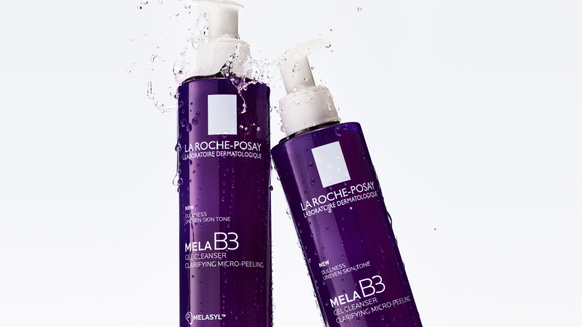
La Roche-Posay’s Melasyl™ Is a Game-Changing Dark Spot Corrector for Sensitive Skin, Here’s Why
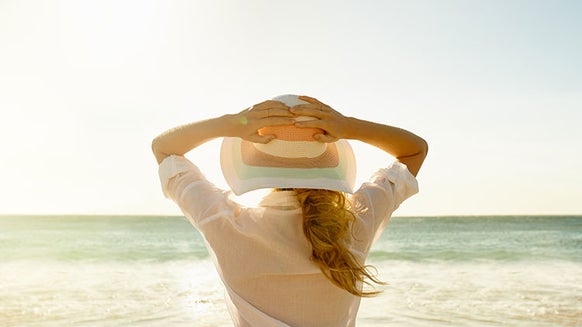
What to Expect During a Skin Exam (Plus How to Give Yourself a Skin Check at Home)


